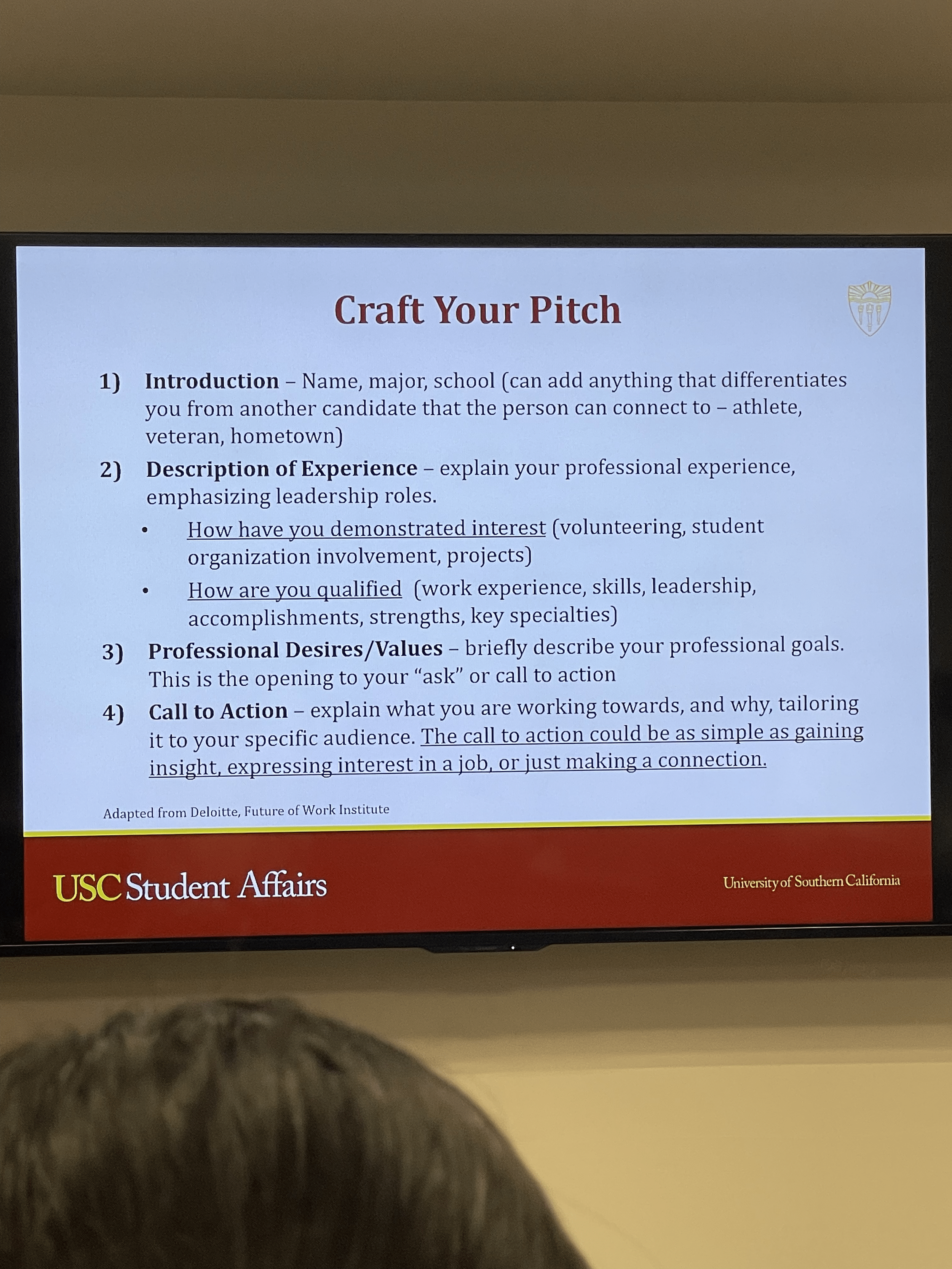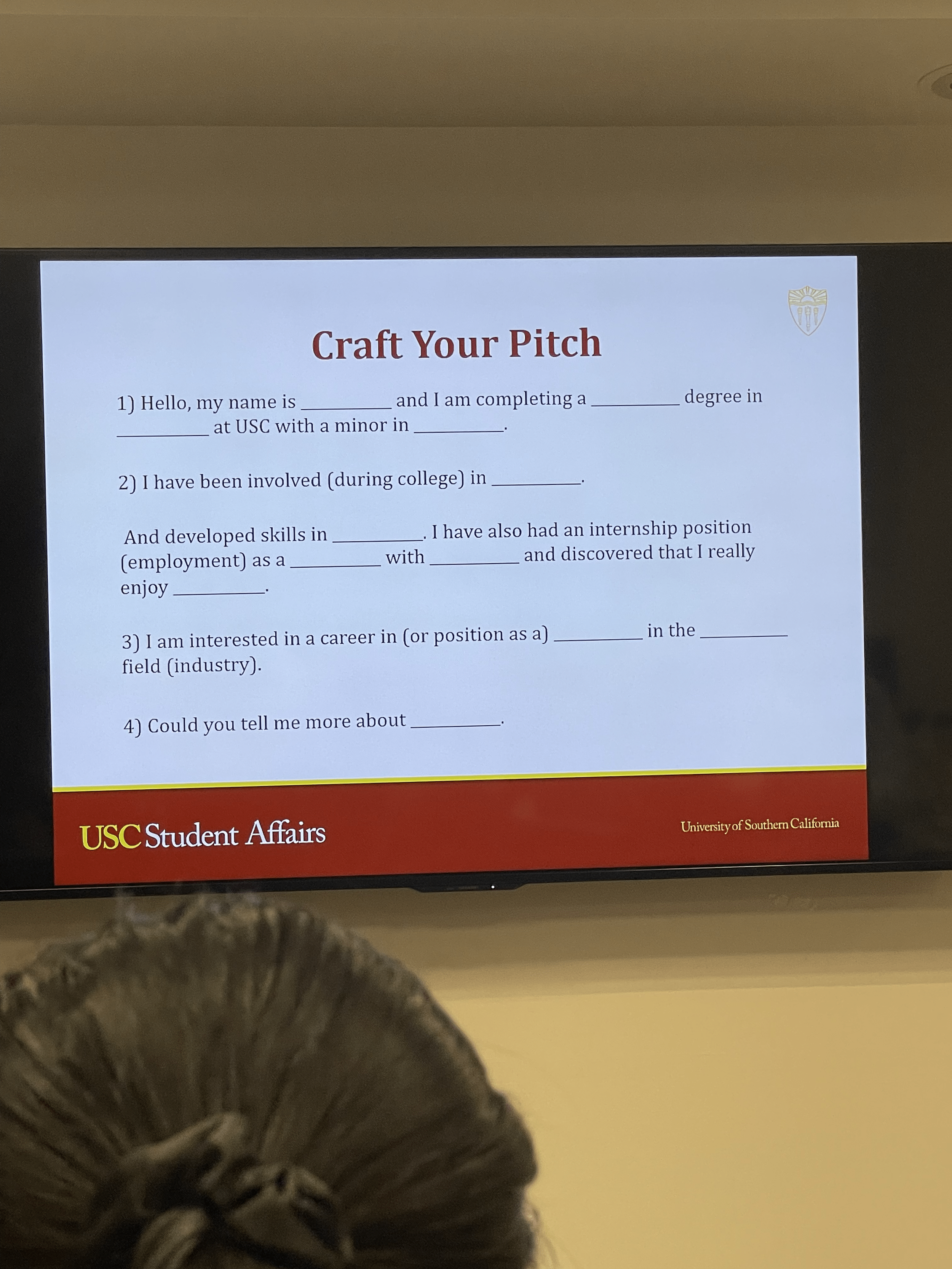The Introvert’s Guide to Networking
By: Ngai Yeung ‘23
Everyone loves to talk about how important networking is, but no one ever gives you a clear answer about how to do it. As a big time introvert, this is extra frustrating because chatting doesn’t come naturally to me. So when I saw that the USC Career Center was hosting a “Networking for Introverts” workshop (bless their heart), of course, I had to check it out. Here’s what I learned at the event, along with my own experiences as a reporter moonlighting as an extrovert.
Plan Ahead
As a general rule of thumb, the more prepared you are, the less nervous you’ll be because you’ll feel like you’re more in control. Here’s a few basic things to help you feel prepared:
Understand what networking is: The workshop defined networking as the “exchange of information or services among individuals, groups, or institutions” to help people learn more about an industry, or build professional relationships and mentorships that can be helpful in their careers.
Know where you can network: Career fairs, industry association events, alumni events, reaching out to individuals on LinkedIn… take your pick.
Know your companies: This isn’t just helpful for demonstrating interest in a role or a company. For an introvert, doing your research on a company — or even a specific recruiter if there’s a role you really want — could help you keep the conversation going smoothly. You can take what you’ve learned online to ask them smart and pointed questions.
Know yourself and your elevator pitch: You don’t want to spend the whole conversation asking questions, though. You also want to talk a bit about yourself so people remember you. Here’s some advice on the event for crafting a short and succinct elevator pitch. Practice it before you go to the event.
Ignore Prevailing Norms and Hone Your Strengths and Personal Style
It’s easy to envy extroverts for how casually they manage to connect with anyone (at least I do). But as introverts, we have strengths that extroverts don’t! We’re better listeners, and show it through small signs like nodding and short interjections. We consider our words more carefully before we speak. We’re more detail-oriented and can tailor ourselves to how we want to be perceived, which means we can be pretty good at communicating with intention.
Everyone has a different networking style — dial up your strengths to develop your personal style.
I once thought I would have to be super chatty to be a good journalist. But I’ve come to realize that my superpower is listening. I’d only have to be chatty for the first minute to get people to start talking. After that, I can ask follow up questions here or there based on what they share, and the conversation will go smoothly from there on as I simply listen and take the backseat.
Know Yourself and Set Realistic Goals Accordingly
Social interactions are draining. That’s why it’s important to know when you’re at your best and allow that to be enough. Don’t go to a coffee chat in the morning if you aren’t a morning person. Weighing the benefits and costs of each networking opportunity carefully so you can make the best impression. Make sure you have time to recharge too. Take a break after meeting one new person, or leave altogether if you’re too nervous or drained to continue. Additionally, don’t set unrealistic goals such as meeting twenty people tonight if you know you’re very shy.
Follow Through
Some people like to follow up (via email, LinkedIn or whatever contact you get) within 24 hours of meeting someone at an event. Others like to wait a few days or even a week before messaging. Whatever you do, just be sure to slide into their DM’s — corporately — before you forget and lose all the effort you put into the connection. I know it can be draining and daunting to send that “It was nice to meet you” + one specific thing from your conversation message, but do it! Tell yourself it will only take 10 seconds and that the person is only going to think of you better for following up.
You Can Actually Enjoy It! (kind of)
Towards the end of the workshop, we watched a short video about free trait theory. Basically, the theory states that all of us have core passions that we care so much about that we’re willing and able to act out of our nature in service of those passions. For example, I was such a big introvert that my middle and high school teachers would complain about how I never spoke up in class. But later on, I realized that I loved learning, and I’m more curious than I am introverted. I also care a lot about the work I do as a journalist. Because of this, I managed to become more extroverted in service of my core passion of journalism.
Just make sure you can carve out small restorative niches of time throughout the day.
Want more from Trojans 360?
Visit Trojans 360 on Facebook & Twitter to stay up to date with more student content! You can also Ask A Trojan an anonymous question, and we’ll try to answer it in a future post. And don’t forget to follow us on Instagram!
Trojans 360 is USC’s official student-run blog. Content created by students, for students.




